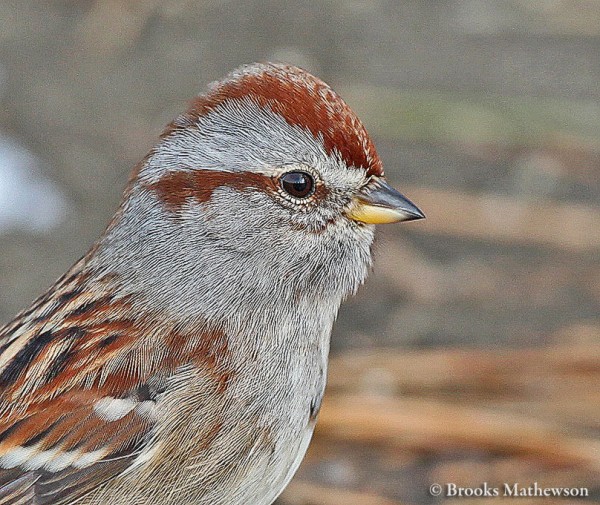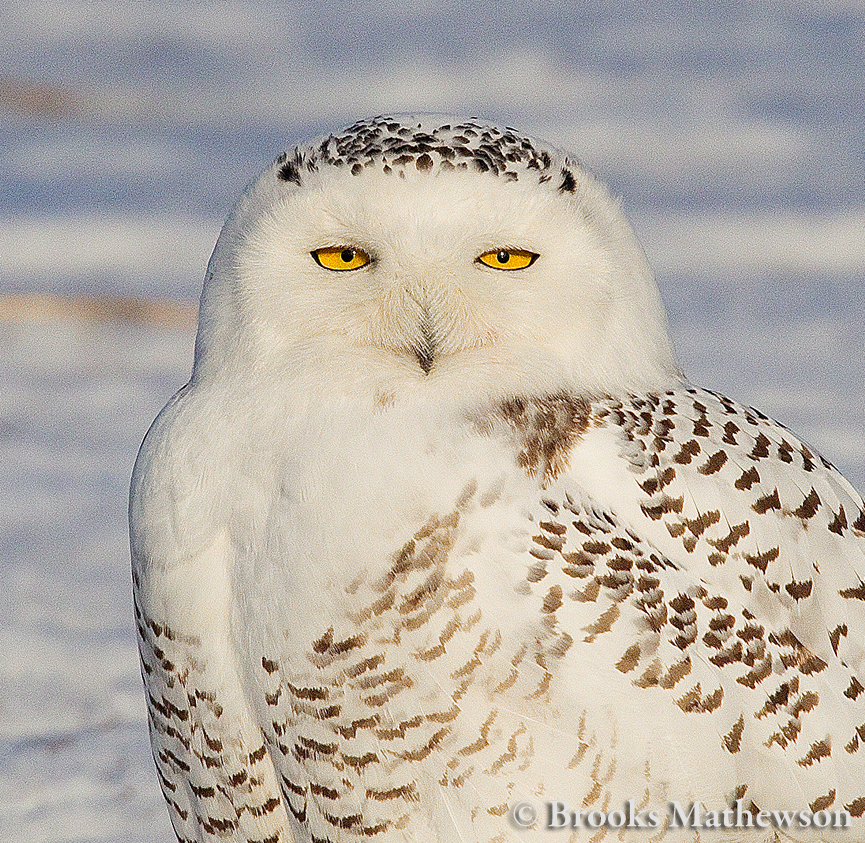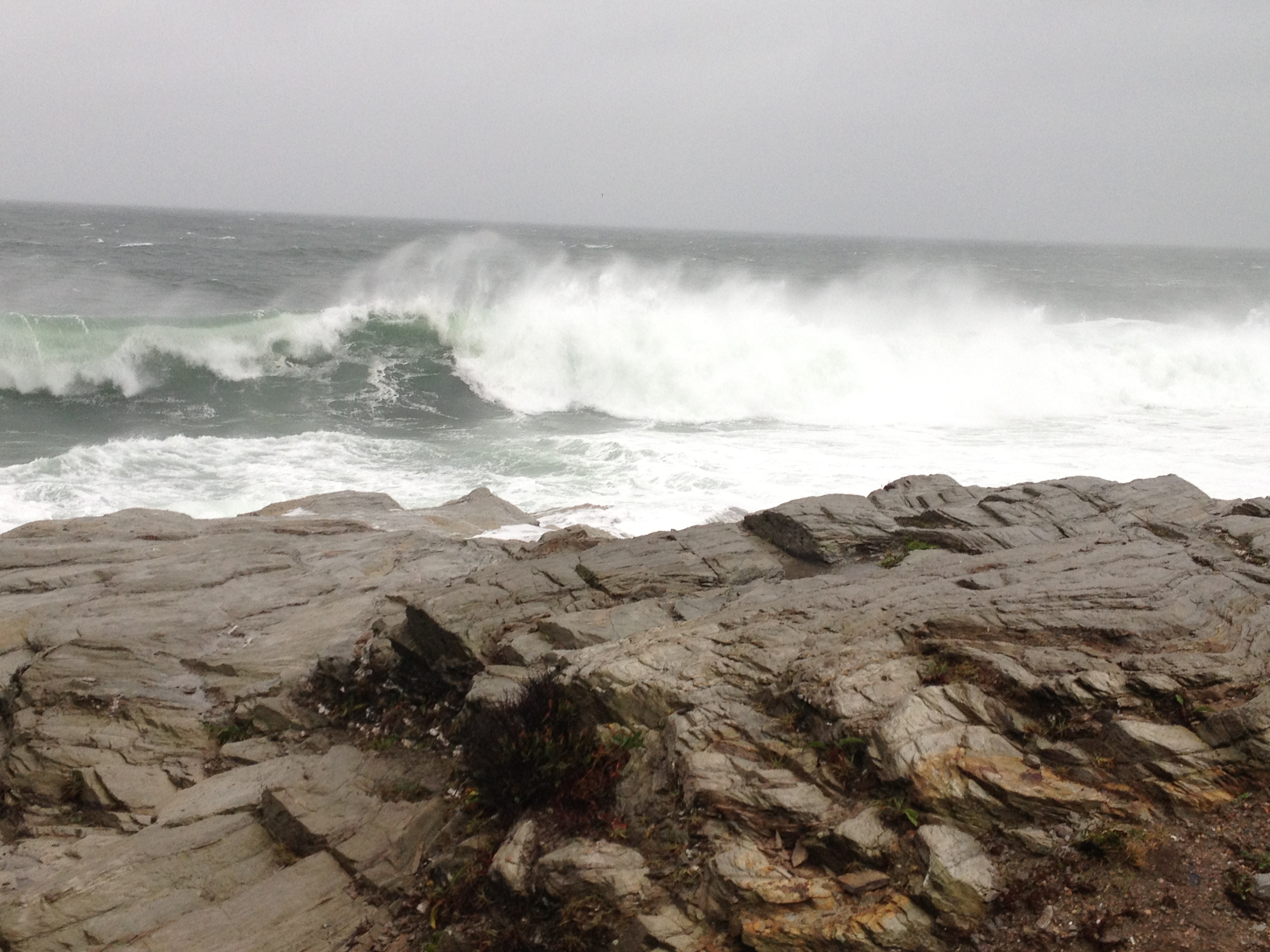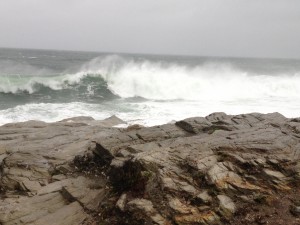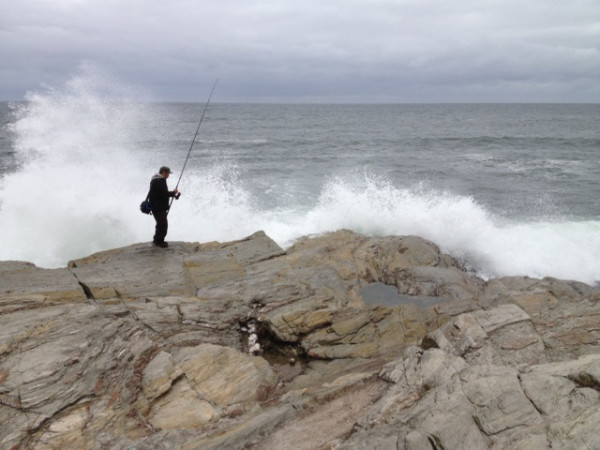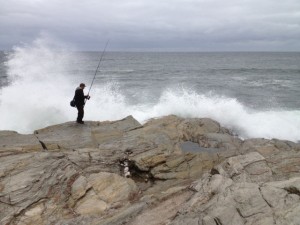Every year Rhode Island provides the wintering home for a great diversity of birds who spend the summer months in the Arctic.
This year, though, one visitor from the north in particular has been present in abnormally high numbers – the majestic Snowy Owl.
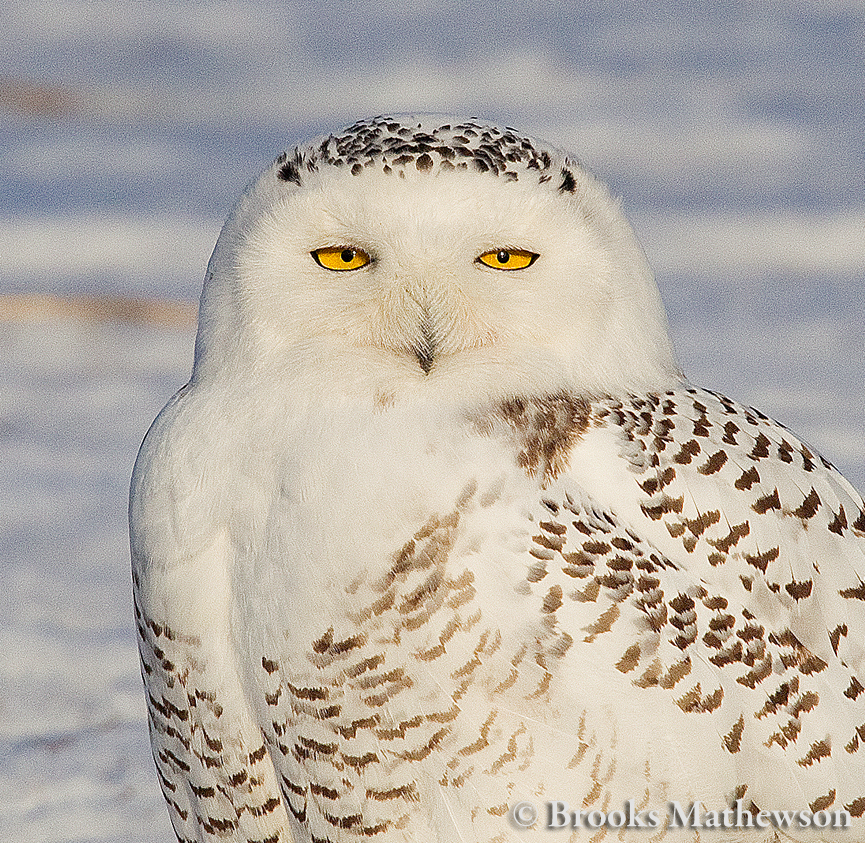
While it is common for large numbers of juvenile Snowy Owls to wander south of the Canadian border in search of food, giving us a glimpse into the wonders of the Arctic, this year has been record-setting with the most sightings along the East Coast in decades. These beautiful white owls with their bright, piercing, lemon yellow eyes seem to be everywhere; from Napatree Point in Westerly to Beavertail State Park in Jamestown, from Sachuest Point National Wildlife Refuge in Middletown to downtown Providence.
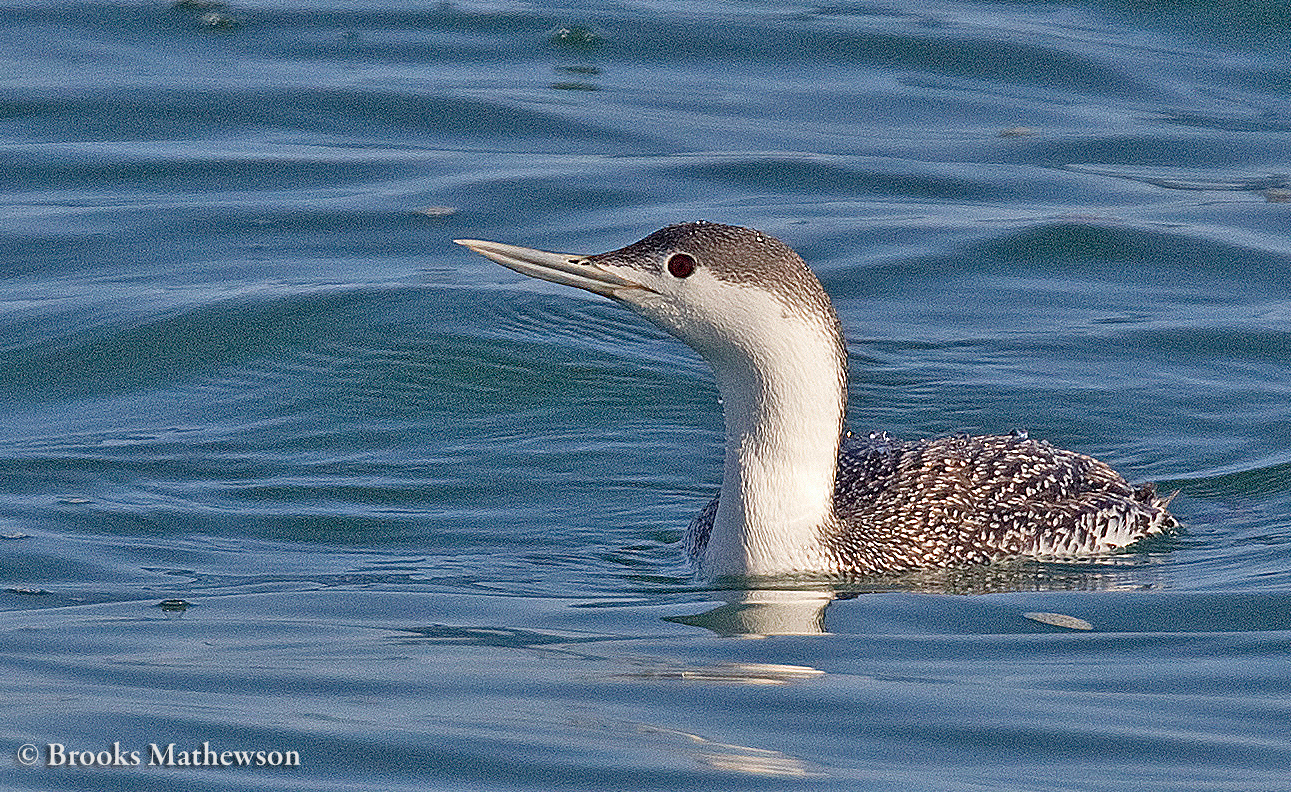
Although Snowy Owls are undoubtedly the stars of the avifaunal show this winter, numerous other interesting birds who breed as far north as the Arctic tundra are worthy of notice. To these birds Rhode Island is their Boca Raton.
A great diversity of sea ducks can be found in Rhode Island in the winter; Common Eiders and Scoters (Surf, Black, and White-winged) dive below the surface to pry shellfish off the rocks with their wedge-shaped bills; ornate Harlequin Ducks forage in the turbulent surf perhaps to remind themselves of the fast flowing rivers of Labrador where they will breed; further out, in rolling waves, Red-breasted Mergansers, Common Loon, Red-throated Loon, and Horned Grebe hunt for fish.
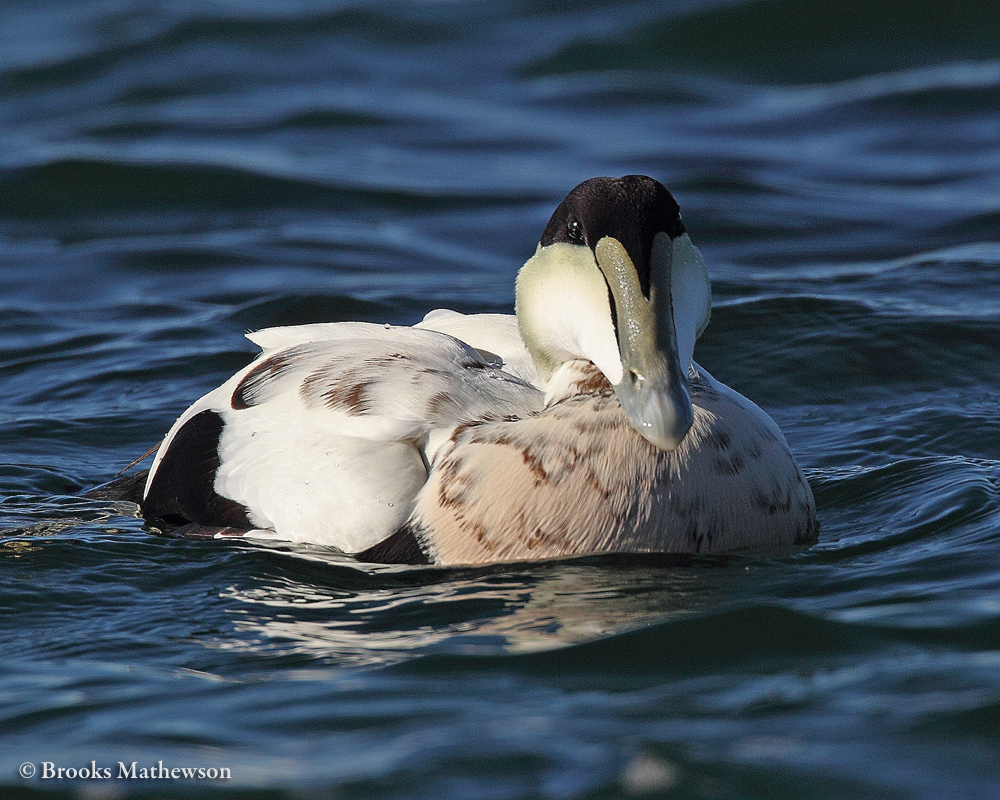
Several species of shorebirds who breed in the Arctic also spend the winter in Rhode Island. The bird which travels the furthest, from hundreds of miles past the Arctic Circle, is the Purple Sandpiper; a stout shorebird with only the subtlest hints of purple in its plumage. Another sandpiper of similar size and shape distinguished by a more drab appearance and a slightly larger, more drooping bill is the Dunlin. Both of these birds are commonly observed probing for invertebrates among the exposed seaweed at low tide on Rhode Island’s rocky shores, jetties, and breachways. Sanderlings, the most familiar of our winter shorebirds, are also found along rocky shores as well as on sandy beaches, scurrying in the advancing and retreating surf.
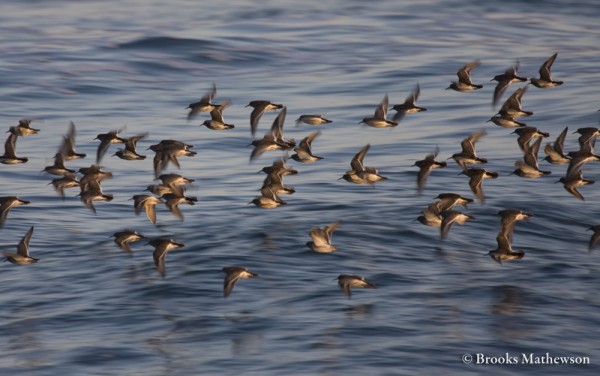
Rhode Island also provides the winter home for several species of songbirds that will be singing and breeding in the tundra and boreal forests of Canada in the spring. Open snow covered fields are the winter retreat of Tree Sparrows and flocks of Snow Buntings, while the dense foliage of conifer trees harbor Red and White-winged Crossbills and Common Redpolls.
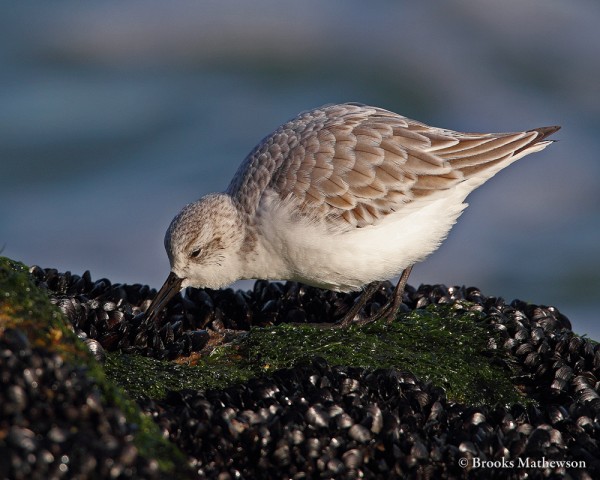
So the next time you are out enjoying the single digit fresh air of the most recent Polar Vortex in pursuit of the charismatic Snowy Owl, remember to keep a safe distance to avoid stressing the birds, and don’t forget to keep an eye out for some of Rhode Island’s other winter visitors.
